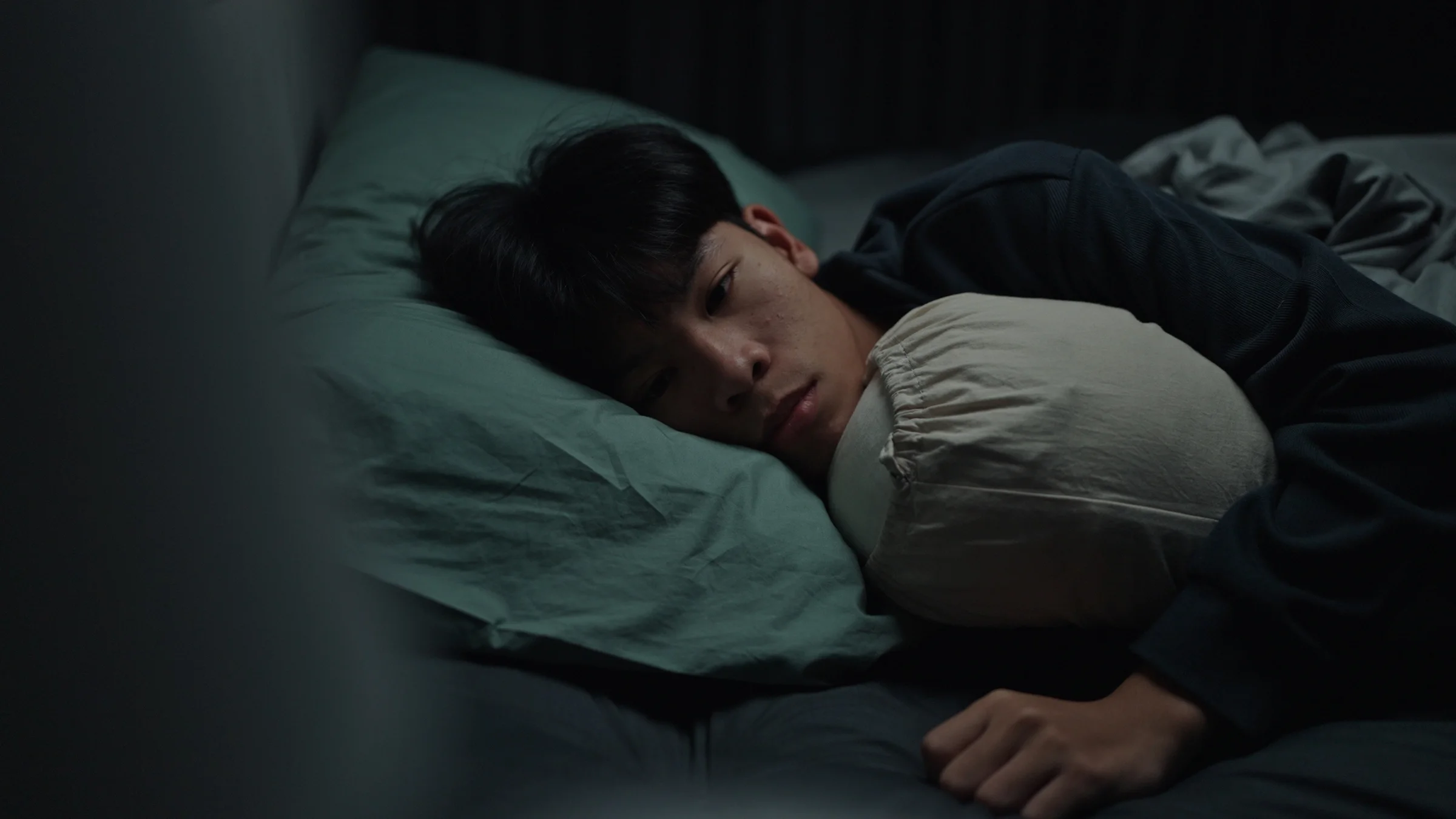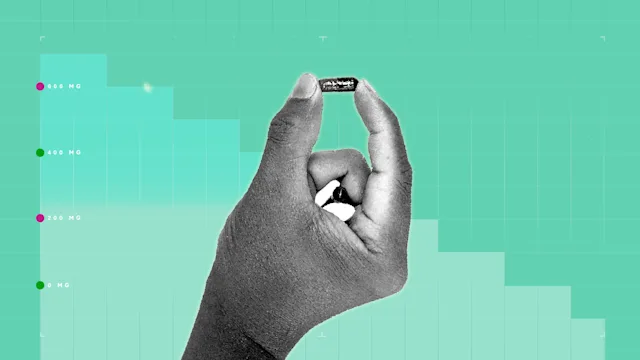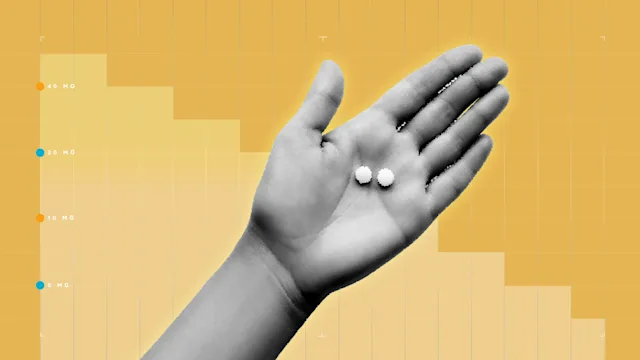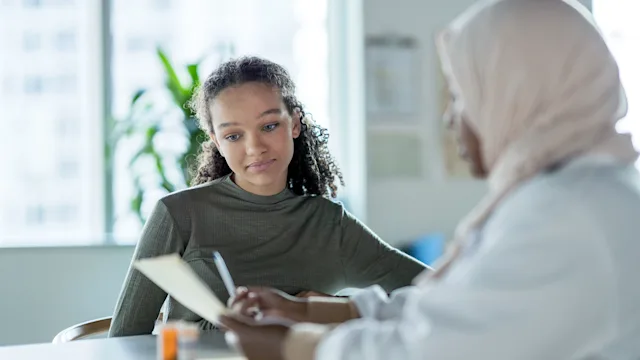Key takeaways:
Insomnia is very common in people with ADHD (attention-deficit hyperactivity disorder).
If you have ADHD, you may have a higher risk of other sleep disorders, like sleep apnea and restless leg syndrome.
Good sleep hygiene habits, like putting your phone down at least 30 minutes before bed, may be helpful for people with ADHD.
If you have ADHD (attention-deficit hyperactivity disorder), you may struggle with getting a good night’s sleep. More than 4 in 10 adults with ADHD have insomnia, and rates are even higher in those with more severe symptoms of ADHD.
If you can’t sleep well at night, it can leave you feeling tired the next day. And this can make ADHD symptoms even worse.
If you have ADHD, you may have to focus on some specific approaches to falling asleep. It’s also important to look at any medications you’re taking for ADHD and how they may affect your sleep.
Search and compare options
Does ADHD cause sleep problems?
People with ADHD are more likely to have insomnia and other sleep problems. One study found the risk of insomnia was more than twice as high in people with ADHD compared to the general population.
The relationship between ADHD and sleep is complicated. That’s because symptoms can affect your sleep and a lack of sleep can affect your symptoms. But there are a few ways that ADHD is thought to cause sleep issues.
ADHD may affect your body clock, or circadian rhythm, which regulates sleeping patterns. This may make it difficult to fall asleep when you need to. And it partly explains why people with ADHD tend to have more night owl habits and prefer to stay up late.
People with ADHD are also more likely to have mood disorders like depression or anxiety than the general population. These mental health conditions can also contribute to insomnia.
And finally: Many sleep disorders are common in people with ADHD.
What sleep problems are most commonly associated with ADHD?
Insomnia is one of the more common sleep disorders in people with ADHD. Symptoms of insomnia may include:
Taking more than an hour to fall asleep at night
Waking up throughout the night
Not feeling rested in the morning
Difficulty waking up in the morning
Attention-deficit hyperactivity disorder (ADHD) in adults: What are the symptoms of ADHD in adults, and how do you treat it?
ADHD can appear different in women. Here are key ways that ADHD symptoms are different in women and men.
Melatonin can help you fall asleep. But you need to take the right amount at the right time.
ADHD is also associated with other conditions that can impact sleep. These include:
Obstructive sleep apnea (OSA): Sleep apnea is when your breathing briefly pauses throughout the night.
Restless leg syndrome: Restless leg syndrome is when you have unpleasant sensations in your legs that cause an urge to move them. The urges can make it hard to fall asleep.
Circadian rhythm sleep disorder: These are problems with the body’s sleep-wake cycle. One example is delayed sleep-wake phase disorder, which is when you go to sleep a few hours later than you need to.
Narcolepsy: This is a neurological disorder that causes excessive sleepiness during the day.
Do ADHD medications cause sleep problems?
ADHD medications can cause sleep problems. In fact, insomnia is one of the most common side effects of stimulant medications, especially in children. Stimulant medications are the most common type of medication used to treat ADHD. A less common type are non-stimulant medications like atomoxetine (Strattera).
- AdderallAmphetamine Salt Combo
- Adderall XRAmphetamine Salt Combo XR (Adderall XR)
- VyvanseLisdexamfetamine
But people respond differently to ADHD medications. Some may have what’s called a paradoxical effect from a stimulant medication. In other words, it can actually be calming and allow you to fall asleep. Also, when your symptoms of ADHD are well controlled with medication, your brain may be less likely to be on overdrive, keeping you awake.
You’ll likely need to work with your psychiatrist or prescriber to adjust your medication based on your own response.
Certain things that you may need to adjust include:
Which medication you take: Different medications affect people differently.
Timing: You may need to experiment with taking medication earlier or later in the day.
Short-acting vs. long-acting medication: Long-acting medications stay in your system longer and may affect sleep.
Dosage: You may need a lower dose in the evening than the morning.
If you have ADHD, what can you do to get better sleep?
If you have trouble falling and staying asleep, there are things you can do to get better sleep. But be sure to talk to a healthcare professional or your therapist to make sure your medications or other issues aren’t causing your sleep problems. They can also help you create and stick with good sleep habits.
Here are some places to start.
Develop good sleep habits
For someone who has ADHD, it can be a struggle to maintain regular sleep habits. Sleep hygiene refers to the behaviors that can help you fall and stay asleep.
In people with ADHD, not following good sleep habits increases the risk of:
Having difficulty falling asleep
Getting back to sleep after a wakeup
Waking up in the morning
Below are some sleep hygiene habits that might be helpful for people with ADHD.
Turn off screens
Blue light from phones and other devices can affect your circadian rhythm and make it more difficult to fall asleep. People with ADHD may be more likely than others to use screens at night.
Try to put your phone down at least 30 minutes before bed — even longer if possible. Choose non-screen activities to wind down like reading a hard copy book, listening to music, or knitting.
Get regular exercise
Plenty of research shows that exercising can help with sleep, including in people with ADHD. Exercise is thought to help reduce ADHD symptoms, which in turn may help make it easier to fall asleep.
One study looked at the link between exercise and sleep in people with ADHD who took stimulant medications. The study found that men who got recommended levels of exercise (150 minutes a week) were less likely to report trouble sleeping than men who didn’t. But the study didn’t find the same response in women who exercised.
A good goal is to aim for 150 minutes of moderate to intense exercise a week. Exercising more may lead to even greater improvements in sleep.
Shift your sleep schedule earlier
If you’re falling asleep later than you need to, try to move up the time you go to bed and the time you set your alarm in the morning. Sticking to a schedule can help regulate your body clock.
If you’re having trouble moving your bedtime earlier, it may help to take melatonin. A small study found that melatonin helped people with ADHD shift back their bedtimes by nearly 1.5 hours. It also helped their ADHD symptoms.
Get outside in the morning
Bright morning light can potentially help “set” your circadian rhythm. The light can make it easier to fall asleep at an earlier time at night. And it has also been found to improve daytime functioning.
When should you see a doctor about low-quality sleep?
If you’re having trouble sleeping and it’s affecting how you feel during the day, it can be helpful to talk to a healthcare professional or therapist. They may want to review your treatment plan, including any medication you’re taking. They can also evaluate you for other health or mental health conditions that can be affecting your sleep.
Here are some signs that you may want to get help:
It takes more than an hour to fall asleep at night.
You wake up in the morning feeling tired.
You have difficulty concentrating during the day.
You can't get to school or work on time because you’re catching up on sleep.
Frequently asked questions
Yes, not getting enough sleep can make your ADHD symptoms worse. Good sleep is important for focus, impulse control, and memory. In one study of adults with ADHD, having insomnia or sleeping less than 6 hours a night increased their symptoms of hyperactivity and inattention.
Yes, therapy can often be helpful for anyone with insomnia. One type of therapy, called cognitive behavioral therapy for insomnia, or CBT-I, was developed specifically to treat insomnia. CBT-I helps you identify how your thoughts, feelings, and behaviors may contribute to sleep problems. A small study on adults with ADHD who had insomnia for many years suggests that it can help improve sleep.
Yes, not getting enough sleep can make your ADHD symptoms worse. Good sleep is important for focus, impulse control, and memory. In one study of adults with ADHD, having insomnia or sleeping less than 6 hours a night increased their symptoms of hyperactivity and inattention.
Yes, therapy can often be helpful for anyone with insomnia. One type of therapy, called cognitive behavioral therapy for insomnia, or CBT-I, was developed specifically to treat insomnia. CBT-I helps you identify how your thoughts, feelings, and behaviors may contribute to sleep problems. A small study on adults with ADHD who had insomnia for many years suggests that it can help improve sleep.
The bottom line
Sleep disorders are common in people with ADHD. And not getting enough sleep can make symptoms of ADHD worse. Sometimes, having ADHD can go hand in hand with unhelpful sleep habits like staying up late at night or using your phone before bed. It helps to manage your symptoms of ADHD with medications or other approaches. Also, try to follow recommended sleep hygiene habits. These steps can help you get a good night’s sleep.

Why trust our experts?



References
Children and Adults with Attention-Deficit/Hyperactivity Disorder. (n.d.). ADHD and sleep disorders.
Coogan, A. N., et al. (2017). A systematic review of circadian function, chronotype and chronotherapy in attention deficit hyperactivity disorder. Attention Deficit and Hyperactivity Disorders.
Fadeuilhe, C., et al. (2021). Insomnia disorder in adult attention-deficit/hyperactivity disorder patients: Clinical, comorbidity, and treatment correlates. Frontiers in Psychiatry.
Helfer, B., et al. (2020). The key role of daytime sleepiness in cognitive functioning of adults with attention deficit hyperactivity disorder. European Psychiatry.
Hvolby, A. (2014). Associations of sleep disturbance with ADHD: Implications for treatment. Attention Deficit and Hyperactivity Disorders.
Jernelöv, S., et al. (2019). Effects and clinical feasibility of a behavioral treatment for sleep problems in adult attention deficit hyperactivity disorder (ADHD): A pragmatic within-group pilot evaluation. BioMed Central Psychiatry.
Martin, C. A., et al. (2018). Associations between sleep hygiene and sleep problems in adolescents with ADHD: A cross-sectional study. Journal of Attention Disorders.
Mehren, A., et al. (2020). Physical exercise in attention deficit hyperactivity disorder – evidence and implications for the treatment of borderline personality disorder. Borderline Personality Disorder and Emotional Dysregulation.
National Heart, Lung, and Blood Institute. (2022). What is insomnia?
Ogrodnik, M., et al. (2023). Mental health in adults with ADHD: Examining the relationship with cardiorespiratory fitness. Journal of Attention Disorders.
Oh, C. M., et al. (2019). The effect of anxiety and depression on sleep quality of individuals with high risk for insomnia: A population-based study. Frontiers in Neurology.
Stein, M. A., et al. (2012). ADHD treatments, sleep, and sleep problems: Complex associations. Neurotherapeutics.
Surman, C. B. H., et al. (2021). Managing sleep in adults with ADHD: From science to pragmatic approaches. Brain Sciences.
Van Andel, E., et al. (2021). Effects of chronotherapy on circadian rhythm and ADHD symptoms in adults with attention-deficit/hyperactivity disorder and delayed sleep phase syndrome: A randomized clinical trial. Chronobiology International.
Wajszilber, D., et al. (2018). Sleep disorders in patients with ADHD: Impact and management challenges. Nature and Science of Sleep.
Wynchank, D., et al. (2018). The association between insomnia and sleep duration in adults with attention-deficit hyperactivity disorder: Results from a general population study. Journal of Clinical Sleep Medicine.
Zhu, F., et al. (2023). The association between physical activity and sleep in adult ADHD patients with stimulant medication use. Frontiers in Psychiatry.














